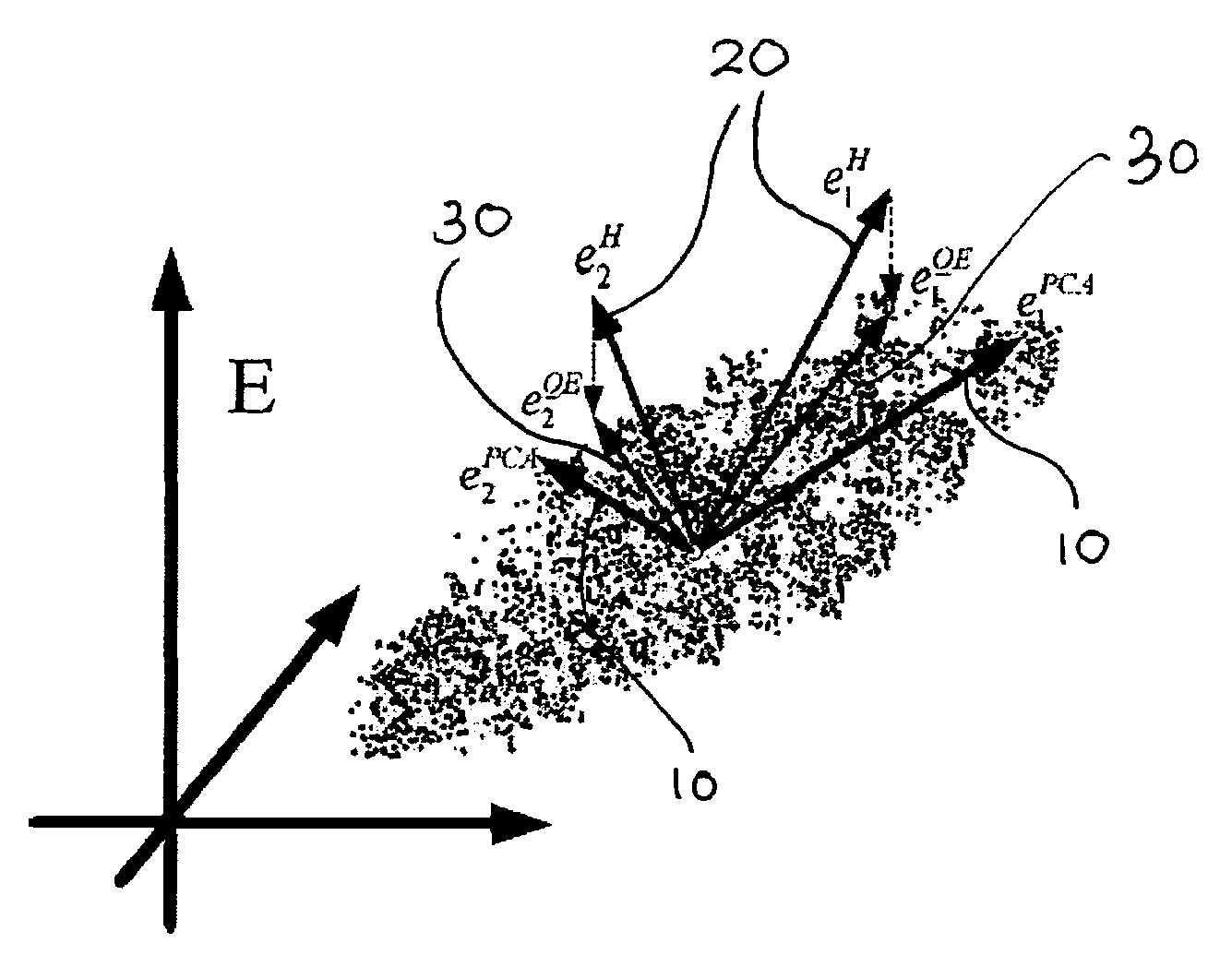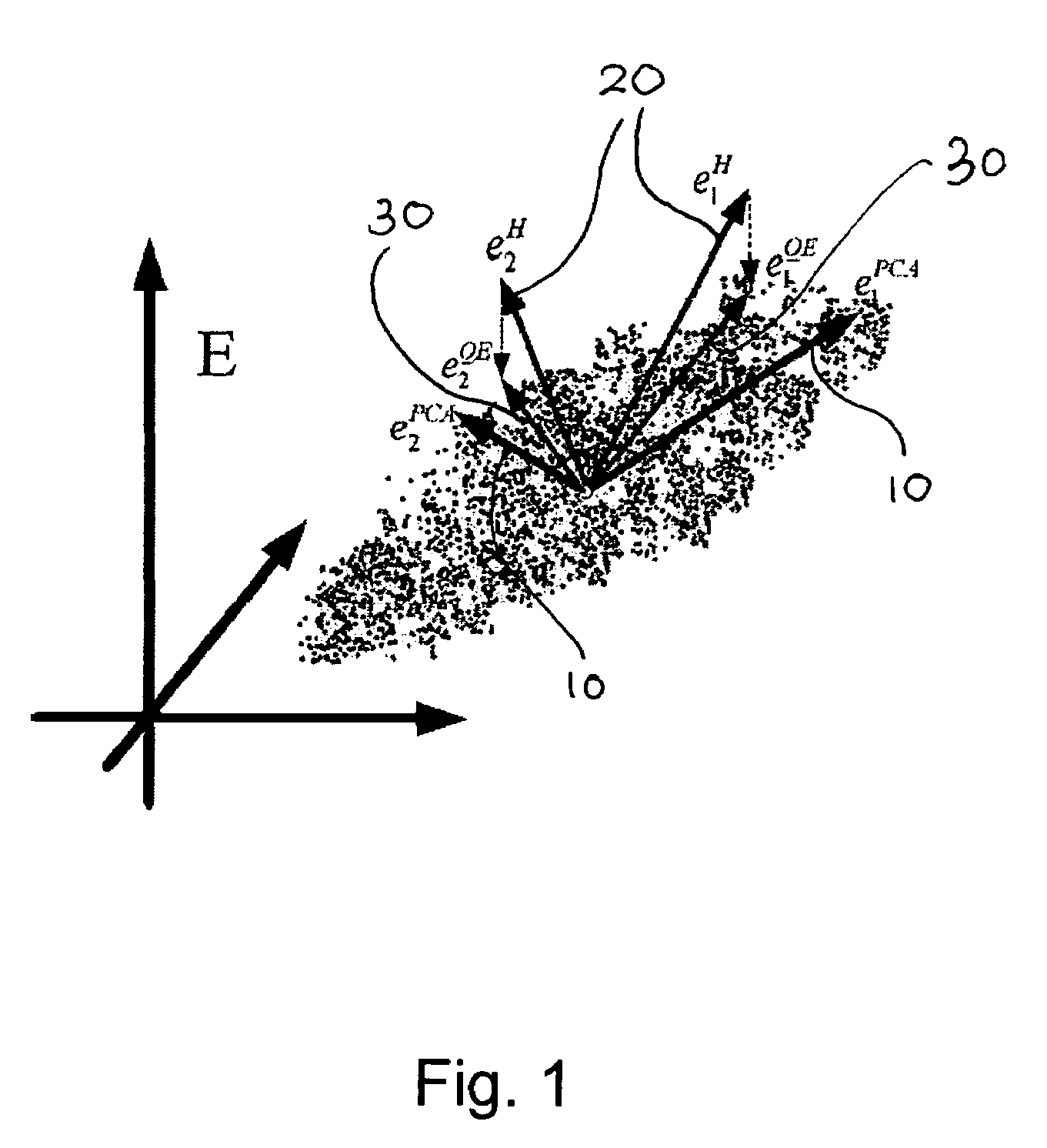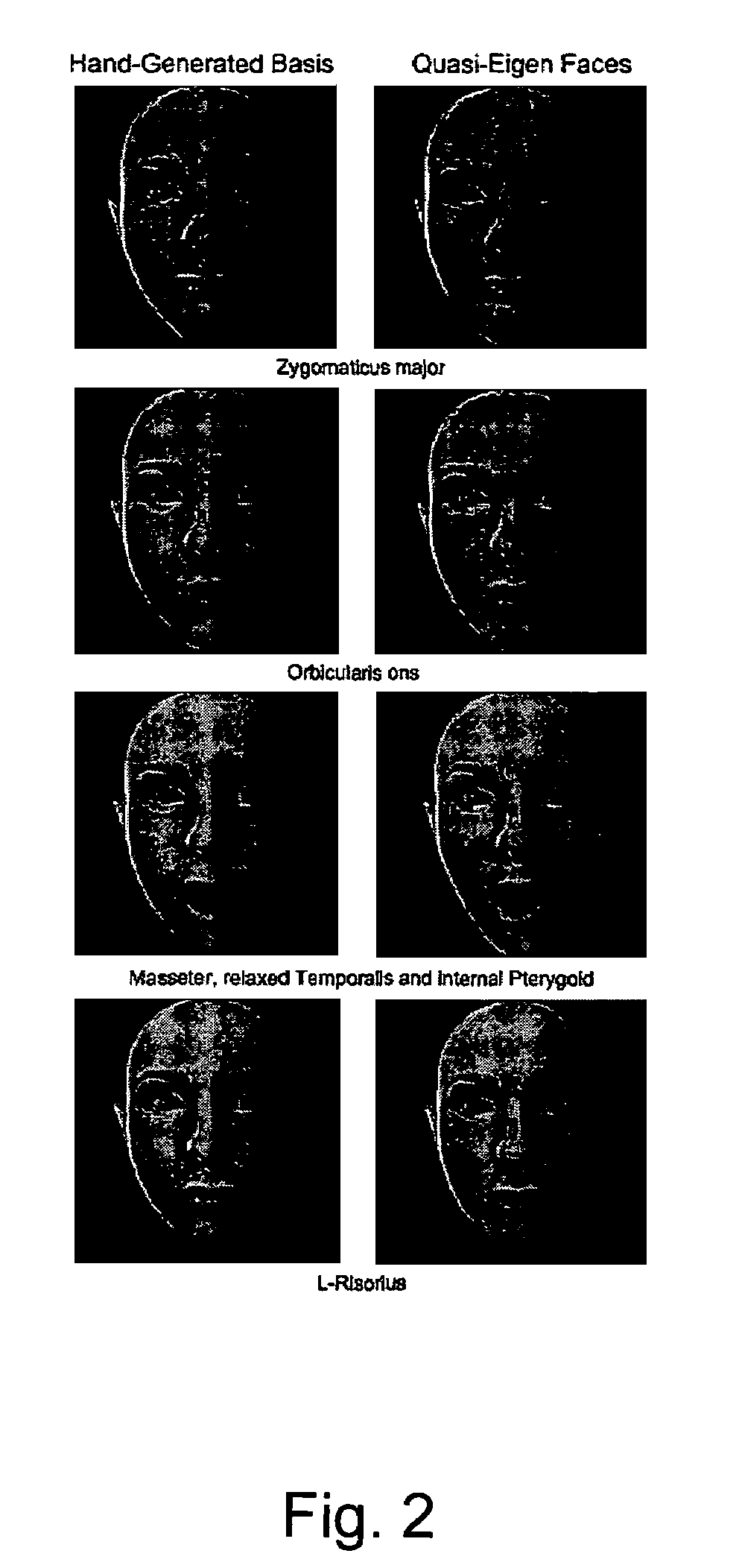Method for generating intuitive quasi-eigen faces
a quasi-eigen face and intuitive technology, applied in the field of generating intuitive quasi-eigen face, can solve the problems of lack of coverage, lack of standard procedure for generating facial expressions, and lack of coverage, so as to reduce reconstruction errors
- Summary
- Abstract
- Description
- Claims
- Application Information
AI Technical Summary
Benefits of technology
Problems solved by technology
Method used
Image
Examples
Embodiment Construction
4. Obtaining Quasi-Eigen Faces
[0066]If the facial vertices v1, . . . , vN are allowed to freely move in 3D space, then v will form a 3N-dimensional vector space. Let us call this space the mathematical expression space E. However, normal human expressions involve a narrower range of deformation. If the applicants plot each expression in Ξ as a point in 3N-dimensional space, the point cloud forms an approximate hyperplane. The PCA is designed to identify the orthogonal axes that span the hyperplane.
[0067]The analogical situation is shown in FIG. 1. The 3D coordinate system can be viewed as E, the dots as forming the Ξ-hyperplane, and the solid perpendicular axes as the principal components. The arrows 10 stand for PCA basis, the arrows 20 hand-generated basis, and the arrows 30 quasi-eigen basis.
[0068]The procedure for obtaining the quasi-eigen faces is based on the principal components. Finding the principal components requires the point cloud to be centered at the origin. Let μ=[μ1...
PUM
 Login to View More
Login to View More Abstract
Description
Claims
Application Information
 Login to View More
Login to View More - R&D
- Intellectual Property
- Life Sciences
- Materials
- Tech Scout
- Unparalleled Data Quality
- Higher Quality Content
- 60% Fewer Hallucinations
Browse by: Latest US Patents, China's latest patents, Technical Efficacy Thesaurus, Application Domain, Technology Topic, Popular Technical Reports.
© 2025 PatSnap. All rights reserved.Legal|Privacy policy|Modern Slavery Act Transparency Statement|Sitemap|About US| Contact US: help@patsnap.com



